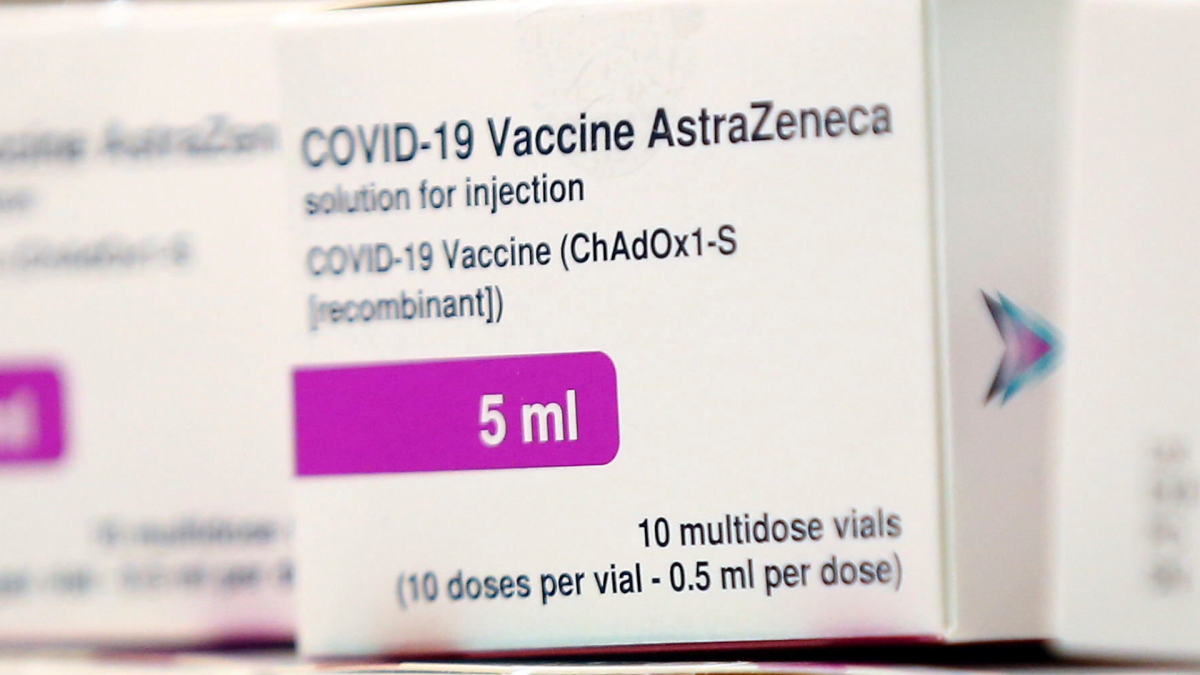A Hamilton-based infectious disease specialist says it’s possible that mixing different types of vaccine doses “might be better” for triggering immune responses to prevent COVID-19 infections.

On Tuesday, Canada’s National Advisory Committee on Immunization (NACI) updated its guidance and said vaccines can be safely mixed and matched in most scenarios.
The recommendations suggest people who received a first dose of the viral vector-based AstraZeneca vaccine may receive an mRNA shot — Pfizer-BioNTech or Moderna — for their second dose, with the advice of a physician.
Dr. Zain Chagla, infection control director at St. Joe’s and assistant professor at McMaster University, says although the vaccines trigger an immune response differently, their function is still similar since each makes a viral spike protein to trigger an immune response.
“So biologically, it wouldn’t make sense why these two vaccines couldn’t be mixed,” said Chagla.
“It’s the question of how much of an effect you get is the same or is slightly better and what’s the optimal interval, which is what we’re still trying to find out.”
Chagla says mixing pneumonia vaccines is sometimes done over time to trigger a response one way, with a follow-up to trigger it another way to make one’s immune system more aggressive.
However, the NACI recommendations are only suggesting an mRNA shot for those who got AstraZeneca as a first dose and not an AstraZeneca shot after a Pfizer or Moderna dose.
“They (NACI) are not going to recommend that because of the clotting risk, right now,” Chagla said.
Hamiltonians aged 80 years and older are now eligible to book earlier appointments for a second shot as per recent changes from the Ford government moving up the four-month interval.

Get weekly health news
Despite NACI’s recommendations, Hamiltonians will have to wait for a go-ahead from the provincial government to potentially book a different brand for a second dose.
Michelle Baird, Hamilton’s director of public health, says it’s important that anyone getting a second shot book it at a spot offering the vaccine they had for their first dose.
As of mid-May, just over 162,000 shots of the Pfizer vaccine have been given out in Hamilton while about 34,000 Moderna shots and 36,000 Astra Zeneca doses have been put into arms.
Those numbers are likely higher as of June 1 with public health reporting 328,000 total doses having been administered across city clinics and pharmacies.
A number of clinics and pharmacies across Ontario had busy weekends as they administered tens of thousands of AstraZeneca vaccines set to expire in June following a pause by the provincial government after reports of rare but deadly blood clots.
Chagla figures the federal government will probably consider “drawing a line in the sand” on future purchases of AstraZeneca and move to offer second doses of the mRNA vaccines exclusively.
“I’m guessing that they’re waiting for the final data set to finally kind of put the nail in the coffin for that,” Chalga said.
“I think there’s likely going to be an end point to AstraZeneca being distributed in Canada, long term.”
Hamilton reports 49 new COVID-19 cases, 2 new outbreaks
Hamilton reported 49 new COVID-19 cases on Tuesday as well as new outbreaks at a supportive housing facility and construction company.
Public health says there are a pair of cases among workers at VL Drywall Services and just a single case with a resident at a St. Leonard’s Society home in central Hamilton.
The city has four surges involving 12 total cases among supportive housing complexes in the city.
Active outbreaks in city workplaces dropped by half on Tuesday after four were declared over.
The largest was at National Steel Car in the industrial sector which involved 42 total cases over a 41-day outbreak.
There are now 23 outbreaks in the city involving 133 cases as of June 1.
Active cases continued to drop day-over-day from 544 as of Monday to 505 on Tuesday. The number is now down 70 per cent compared to May 1.
The city’s reproductive number — the average number of people an infected person is passing COVID-19 on to — remains at 0.68.
The percentage of Hamilton tests returning from Ontario labs as positive for COVID-19 is 8.3 per cent, above the province’s last reported daily number, 3.6 per cent, on June 1.
As of Tuesday, the city’s hospitals are treating 68 patients with COVID-19.
Hamilton Health Sciences (HHS) facilities have 44 total COVID patients, with 22 occupying ICU beds.
St. Joe’s reported 24 patients, 18 of them in an ICU.
The ICU occupancy rate at St. Joe’s is now at 115 per cent as of June 1, while HHS facilities are at 106 per cent.















Comments